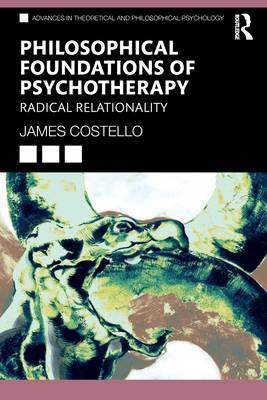
- Retrait gratuit dans votre magasin Club
- 7.000.000 titres dans notre catalogue
- Payer en toute sécurité
- Toujours un magasin près de chez vous
- Retrait gratuit dans votre magasin Club
- 7.000.0000 titres dans notre catalogue
- Payer en toute sécurité
- Toujours un magasin près de chez vous
Description
Philosophical Foundations of Psychotherapy promotes a critical understanding of the ideas, traditions, values, and principles that inform and shape - for better or for worse - what therapists do.
The book challenges the unhelpful misconception that philosophy is for philosophers alone, because human reality is too complex for therapists to be unaware of the foundations, difficulties, and contradictions within our value systems, ethics, and assumptions. By retrieving attitudes from other times and other places, traversing the relational contours of history right up to contemporary thinkers and practitioners, the author argues that not only do relationships heal, but they offer the only safe harbour in life's sea of troubles. He promotes a conscientious radical relationality, which remains attentive to its influences, including contemporary debates about our neoliberal selves, the superstructures of culture, and the ethics of authenticity. In stepping back from the sometimes- narrow concerns of our therapeutic methods, the book explores broader themes important for living well: what is the good of therapy, how do we reconcile our sense of futility in the face of an indifferent universe, postcolonial debates, responses to disembodied artificial intelligence, and alternatives to our human- centred stance towards Nature.
This book is primarily for practitioners, trainees, and educators, but ultimately it is intended for the greater good of clients and those interested in what therapeutic practices and practitioners have to offer. It will also be useful for those teaching research methods, the practice of research supervision, reflexivity, and personal development, across all areas related to mental health.
Spécifications
Parties prenantes
- Auteur(s) :
- Editeur:
Contenu
- Nombre de pages :
- 254
- Langue:
- Anglais
- Collection :
Caractéristiques
- EAN:
- 9781032499505
- Date de parution :
- 23-12-24
- Format:
- Livre broché
- Format numérique:
- Trade paperback (VS)
- Dimensions :
- 156 mm x 234 mm
- Poids :
- 385 g

Les avis
Nous publions uniquement les avis qui respectent les conditions requises. Consultez nos conditions pour les avis.






